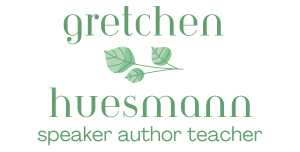
I Ate Yesterday
Recently, my husband and I were walking the streets of Hell’s Kitchen in Mid-town Manhattan. We happened upon a homeless man sitting against a building. After talking to the man for a few minutes, my husband offered to buy him some food.
He declined. “I ate yesterday,” the man explained.
As if that explained anything.
Similar phrases from the past replayed in my mind.
“I took a bath last week.” (That one always made me chuckle.)
“I washed my hands yesterday.” (Really? Nice try!)
Now, “I ate yesterday.” Hmmm.
I walked away wondering, was the man ‘half in the bag’ and that’s why he refused to eat? Or did daily eating really become so foreign to him that he couldn’t imagine a meal again so soon? Or maybe the man simply didn’t trust us.
I knew he needed food, so I suggested to my husband, “Let’s buy him something anyway and he can save it for later.”
He shook his head, “Hon, we can’t force him to eat.”
As we continued walking, my thoughts turned to the prayer that Jesus taught us. Some refer to it as the “Lord’s Prayer” or the “Our Father.” Whatever you call it, it includes this line: “Give us this day our daily bread.”
The Reformer, Martin Luther defined daily bread as “Everything that belongs to the support and wants of the body, such as meat, drink, clothing, shoes…1” and so on. When we pray this portion of the Lord’s Prayer, we’re asking that our physical needs be met each day.
Yet the “daily bread” Jesus was referring to includes so much more.

In John 6:35 Jesus says, “I am the bread of life. He who comes to me will never go hungry, and he who believes in me will never be thirsty. In addition, in Deuteronomy 8:3 we’re reminded, “Man does not live on bread alone, but on every word that comes from the mouth of the Lord.”
In other words, we feast on The Bread of Life – Jesus – through His Holy Word, the Bible, when we read it, study it and memorize it. (And also through the Lord’s Supper, but that’s for another blog. Today I want to focus on the Bible.)
However, like the man on the street, we so often neglect to enjoy the nourishing benefits of such a feast and are left spiritually malnourished.
Why? Why is it so hard to make daily Bible reading a priority?
Is there a Bible shortage? Hardly. According a 2013 Barna Poll, 9 out of 10 American households own a Bible. In fact, anyone can pick up a paper back at Wal-Mart today for very little cost.
Then, what’s the problem? I can’t begin to explore all the possible explanations to this issue, but I’d like to deliberate just a few.
Let’s go back to the man on the street and consider my first theory. The man was holding 24 oz. can of beer with a straw in it, enough to curb anyone’s appetite. Isn’t that often the case with us as well? We ignore the need for God’s Word, because there’s no room for it. We fill our minds and thoughts with media-driven information. Opinions, propaganda, and social influences vie for our attention while God’s Word sits neglected, dusty and un-used. Seriously, there is a lot of junk food out there while the Bread of Life remains untouched.
When was the last time you shut off your television and picked up the Bible at the end of the day instead of catching the latest forecast? Imagine if you read even a snippet of Scripture as often as you check Facebook! Don’t worry, as I’m writing this and pointing a finger at you, I have three more fingers pointing back at myself on this one! Guilty as charged.
Perhaps my second theory applies. For some, daily eating has become rare. Many of us know the importance of reading our Bibles. So we take a little bite once in a while, a devotion or two during the week, hoping that will sustain us. Checking it off our ‘to-do’ list and feeling pretty good if we’ve at least had a little ‘religion’ occasionally. Like our friend from the city, “I ate yesterday” makes perfect sense.
Snacking on God’s Word is not wrong, mind you, just like eating yesterday, isn’t a bad thing! But wouldn’t you agree that partaking everyday would be even better, keep us stronger, and give us greater strength to face all that is before us? Just food for thought. (Sorry, I just had to get that pun in somewhere.)
Snacking every day, though better than nothing, still leaves us wanting. Simply “snacking” on God’s Word can sustain us for a time, but feasting on God’s Word in regular worship or weekly Bible study will offer us the spiritual nourishment that our souls require.
Ah, but what if we’re leery about such a banquet. Perhaps a past meal turned out to be tainted and made us sick! Such an experience can make us cynical and suspicious.
I believe it’s this trust issue brings the most resistance. The aforementioned Barna Poll revealed that there are a growing number of people who are antagonistic toward the Bible, believing it to be merely a book of nice stories, rather than ‘containing everything one needs for a meaningful life.’ Additionally, nearly half of American’s believe “the Bible, the Koran and the Book of Mormon are all different expressions of the same spiritual truths.”
So how can we tell the good stuff from the bad? Simply put, we need to get to know the Chef. Pour over His recipe book. If you don’t trust the cook, you won’t eat his food.
And how can you trust Him if you don’t know Him. Find out what He’s about. “Taste and see that the Lord is good.” (Psalm 34:8)
But sadly, I can’t force anyone to do this as I can’t force anyone to eat.
However, I CAN tell my story of redemption through Jesus. How my reading of God’s Word literally changed my life. How He has guided me and led me along life’s path through it. The Bible is my resource for everything – a lamp for my feet and a light for my path. (Psalm 119:105). I can tell my story which points back to God as I share what His Word has done in my life, and you can too. As you encounter antagonism, remember, no one can argue with your story. It’s your testimony.
You can’t force feed, but you can share your culinary experience.
I have one more theory that has nothing to do with my homeless friend. Although he would not eat what we offered, he did not seem intimidated or afraid. Yet, I have found that the 66 books of the Bible can be overwhelming for some. More and more people in America are not familiar with the Bible. They are sometimes too intimidated to attend Bible classes and become frustrated when trying to read the Bible on their own.
There are tools out there that can help. One very practical resource is called Navigating the Bible: Seven Tools for Making the Bible Yours written by Jackie Oesch. It is written to be used as a personal study but can also be easily be worked through with a group. (You can find more of her great Bible studies at her website here.)

I’m finishing up this blog on the day after Thanksgiving Day. I’ve been in a food coma for the last 12 hours and really have no interest in breakfast yet. Truth be told, most of us have eaten enough to literally sustain us for some time. Yet, will we abstain from eating today? How about tomorrow? Probably not. We will continue to eat even after Thanksgiving because we know we need the nourishment for energy and strength.
Yesterday’s meal will not sustain us today, not for long anyway.
In the same manner, God invites us to savor daily meals of God’s Word though devotions (snacking) and regular Worship and Bible Study (feasting). Don’t put these off because “you ate yesterday.”
1Luther’s Small Catechism, Concordia Publishing House, 1986.
About Post Author





